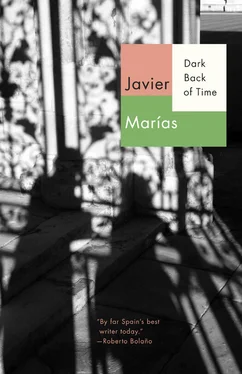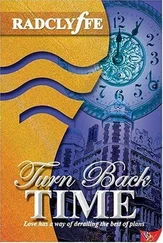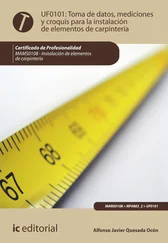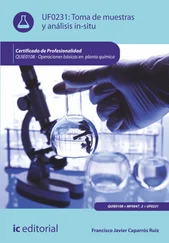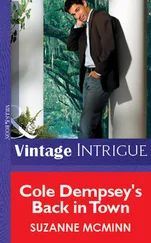But then again, no. On one of my visits subsequent to the expiration of my contract — it must have been in the summer of 1987, after spending nine soporific days at a literary seminar in Cambridge with Ishiguro, the agreeable Vikram Seth, P.D. James, the late Angela Carter, David Lodge, the antediluvian Wesker and others, all of us roused from sleep during those cloistered days only by the critic George Steiner — I complied with my tradition of paying a visit to an elderly retired professor I used to drop in on once a month during my Oxford years and whom some have wanted to see represented in the character in All Souls named Toby Rylands, and therefore I shall call him Toby Rylands here as well, using his supposed fictional name to refer to someone who neither was nor is but may well end up being fictional. I’ve always had great admiration and respect for this professor, and beyond that he was amusing, an intelligent, astute man, guileful and learned and so suggestive as to be almost enigmatic. By suggestive I mean not only that he sparked the imagination with his imposing presence, his slow intensity and the studied intermittences of his speech, but that he continually suggested deplorable events in his past, remote, semi-clandestine activities and associations that were improbable and theoretically improper for a university professor, without ever embarking on a story. According to the publicly available biographical notes (so I’m not committing any indiscretions), he went by the last name of Wheeler before he began using the name he now uses, his mother’s maiden name; he was born in 1913 in Christchurch, New Zealand, which did not prevent him from becoming more of an Oxonian than any other member of the congregation (which is the term used for the entire corpus of professors or dons) I ever met; the biographical summaries state tersely that he enlisted in 1940 and at the end of that year was assigned to the Intelligence Corps or Information Service or Secret Service, adding that between 1942 and 1946 he performed “special duties in the Caribbean, West Africa and South East Asia.” However, these facts were of no use to me when I sat down to portray the fictitious Toby Rylands, someone quite different from the person he was and is, for during the period when I saw the real man most often I was unaware of them (one does not think of consulting biographical entries, if they exist, on a person one sees frequently), and the man himself, as I’ve said, never recounted anything in full about his possible inclement or adventurous days, but only allowed them to be glimpsed.
On one occasion, for example, he murmured, “Once I had to entertain and keep my eye on a crown prince, for weeks.”
I would wait for a tale to ensue, sensing that this sentence was the preamble to some strange and diverting story that would be well worth hearing out. And, at the silence that followed — Rylands broke off, as if to ponder whether he had done well in proffering what he had just proffered and whether he wanted to recount the episode or keep it to himself — I tried to cajole it out of him: “Oh really? What was that like? They mustn’t be very interesting, princes.”
Then he passed his immense, peaceable hand over his wood-hewn cheeks as if it were all suddenly coming back to him at once, and that were enough, and perhaps, as he remembered it all, he came to see the story he had been tempted to confide in me as unnecessary.
“Hmm,” he said, like so many people in Oxford, where much mumbling is done. “Hmm.” And his eyes glittered with recovered youth.
I persisted. “What sort of prince was he? European, African, Russian?”
“He was indeed a prince. A most delightful prince. He drank a lot and I had to go along on his binges. That’s why I can hold my drink. This sherry does not convince me, I’m going to tell Mrs. Berry not to bring me any more of it.” And he lifted the glass to his pencil-thin lips, thus putting an end to his precarious incursion into the past, or at least to the spoken and witnessed part of it. I know the English word he used was “binges.”
I made the fictional Rylands a former spy with MI5, the most famous of the British secret services, and I mentioned wartime missions he was said to have carried out in Martinique, Haiti, Brazil and the islands of Tristan da Cunha, all of it according to Oxford’s indefatigable rumor mills. These were things I made up, that was all; they may have been suggested by his incomplete allusions during our conversations, for I knew nothing at that point about the biographical information in the public domain.
Nevertheless, the identification between the two Rylands was understandable, up to a point, because in order to describe the fictional character I selected and embroidered upon and shifted around certain physical attributes of the real person, which must have been what led superficial readers into confusion. The novel says, “He was a very large man, enormous, really, who still had all his hair, white and undulant — a mound of whipped cream — on a statue’s head, always well dressed, with more vanity than elegance (bow ties and yellow sweaters, a rather American look or that of a student from bygone days) …” “His almond-shaped eyes made the greatest impression; each was a different color, the right one olive oil and the other pale ashes, so that if you looked at him from the right you saw a sharp expression that was a touch cruel — an eagle’s or perhaps a cat’s eye — while if you looked at him from the left the expression was contemplative and serious, and straightforward as only a northerner can be straightforward — the eye of a dog or perhaps a horse, the two most straightforward-seeming of animals; and if you looked at him head-on you met two gazes, or rather two colors in a single gaze, which was cruel and straightforward, contemplative and sharp.” “As for his laugh, that was the most diabolical thing about Toby Rylands: his mouth barely moved, only just enough — horizontally — so that beneath his fleshy, purplish upper lip a row of small, somewhat pointy but very straight teeth appeared, perhaps a good imitation by a well-paid dentist of the set that age had deprived him of. But what was most demonic about that short, dry laugh was not the sight of it but its sound, for it was nothing like the customary (written) onomatopoeias, all of which rely on the aspiration of the consonant (whether it be ha-ha-ha or heh-heh-heh or hee-hee-hee, or even ah-ah), no, in his case the consonant was distinctly plosive, a very clear alveolar ‘t,’ as the English ‘t’ is. Ta-ta-ta: that was Professor Toby Rylands’ chilling laugh. Ta-ta-ta. Ta-ta-ta.”
And the unmistakable laugh of the real Rylands was indeed like that, as was he himself more or less, though he didn’t have fleshy lips or eyes of different colors, but two eyes of so Nordic a blue they seemed almost yellow under direct sun or electric light, a vigilant gaze or, more precisely, eyes that lay in ambush, that seemed to be forming an opinion even when they looked distracted or sleepy or absent, thinking for themselves without the mind’s intervention, judging. He was one of those individuals who never demands or remonstrates but before whom you often feel yourself to be deficient in some way, if you haven’t entirely abandoned the reflexes of youth; such people make no reproach and do not manifest their discontent, yet you feel forever on the verge of incurring their silent disapproval. This effect isn’t easily achieved; it does not depend on one’s bearing or manners or wealth or pretensions, or even on the kind of enraged reprisals that in the course of my life I’ve seen from certain social-climbing businessmen when they were crossed: contemptible, insecure people who inspire no respect and need to convince themselves of their eminence, crushing anyone they can, anyone who is weak, to ceaselessly renew their always scanty confidence (in my younger days, I once had an editor who was like that, I left him with revulsion and without a second thought, his face would go red and his eyes drifted obtusely, he was unable to pronounce a sensible or complete word, sluggish in thought and speech, bewildered when his exploitative will was thwarted — he started out in the black market, they said; I’ve also known writers of the same ilk, despotic and full of complexes, any disagreement shakes them to the core or shatters them). In fact there’s no need, nor is it possible, to do anything extraordinary to produce in others this intimidation and desire for recognition, or at least acceptance. Toby Rylands achieved it without much effort, though he did seek it: with his occasional terseness, his sharp-edged voice that took advantage of old age to sound an occasional note of affliction and make itself dramatic, his eyes that were interpretative when he listened and also when he spoke, as if there were no give and take in conversations with him and you were exposing yourself at every moment, when you spoke and when you were silent, when you were telling your story and when you were waiting as he was holding forth. He was, moreover, reputed to be quite unscrupulous — ruthless, actually — in punishing enemies or those who simply offended him, and for him these were punishments, not acts of vengeance; enlightened men do not take revenge. It was rumored that on one occasion, upon learning that a university in the United States was about to offer some succulently lucrative position to an ungrateful or insufficiently obsequious disciple of his, the tactic he came up with to keep this from happening was to accuse this disciple, sotto voce , of coprophagy, no less, which sufficed to make the moneyed Southern puritans cancel the nauseating contract, apparently without even wondering how Rylands could be in possession of such reliable information on practices and activities which, if they truly exist (and I doubt they do; these are figments and affectations of literature and cinema), would certainly never be spoken of openly by anyone, still less in the city of Oxford where almost nothing is overlooked and what isn’t known is created or invented. Had he actually said this, Toby Rylands’ shrewdness would have been considerable, even Mephistophelian, since he chose a stigma about which no one would ever dare question the defamed man, thus forestalling all possibility of denial or defense. How dangerous credible voices are, authoritative voices, voices that never lie, as if waiting for the day when the time has come and it is really worth the trouble, and then effortlessly they persuade us of the most far-fetched or poisonous things. It may be that my own voice is becoming one of these, with age and some of what I’ve written, though most of it is fictional. But still I don’t lie.
Читать дальше
